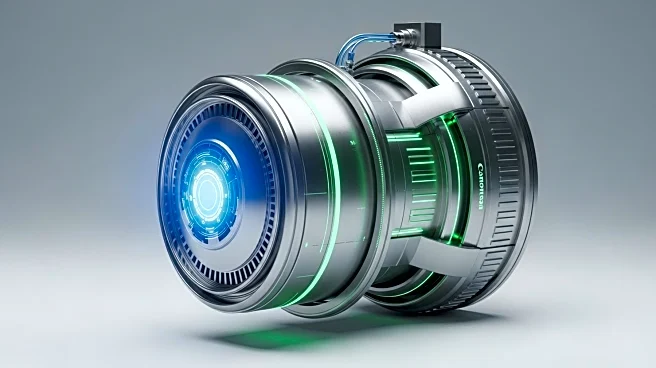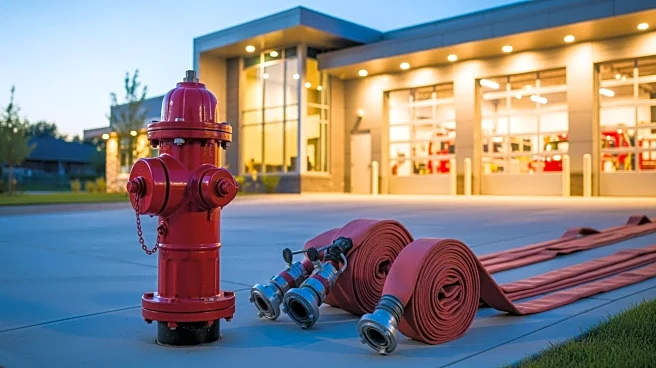What's Happening?
A Japanese pilot project, sponsored by the New Energy and Industrial Technology Development Organization (NEDO), has achieved a 98% reduction in methane slip during demonstrations on an LNG-fueled coal carrier operated by Mitsui O.S.K. Lines. The project, led by Kanadevia Corporation, Yanmar Power Technology, and MOL, utilizes methane oxidation catalysts to significantly reduce unburnt methane emissions, which have a higher greenhouse effect than CO2. The system combines exhaust gas recirculation technology with methane oxidation catalysts placed on the exhaust pipe, achieving a reduction rate of 93.8% in land-based tests and 98% during onboard trials.
Why It's Important?
The successful reduction of methane emissions in this pilot project represents a significant advancement in environmental technology, addressing a critical aspect of greenhouse gas emissions. Methane has a more potent greenhouse effect than CO2, making its reduction crucial in global efforts to combat climate change. The project's success demonstrates the potential for widespread application of methane oxidation technology in the maritime industry, contributing to cleaner shipping practices and reduced environmental impact. This development aligns with international goals to lower greenhouse gas emissions and could influence future regulatory standards and industry practices.
What's Next?
Onboard trials of the methane reduction system will continue into FY 2026 to evaluate overall system performance and catalyst durability. The project aims to commercialize the technology starting in FY 2027, potentially leading to broader adoption across the maritime industry. Continued support from NEDO and verification by ClassNK will be crucial in advancing the project's goals and ensuring its successful implementation.










